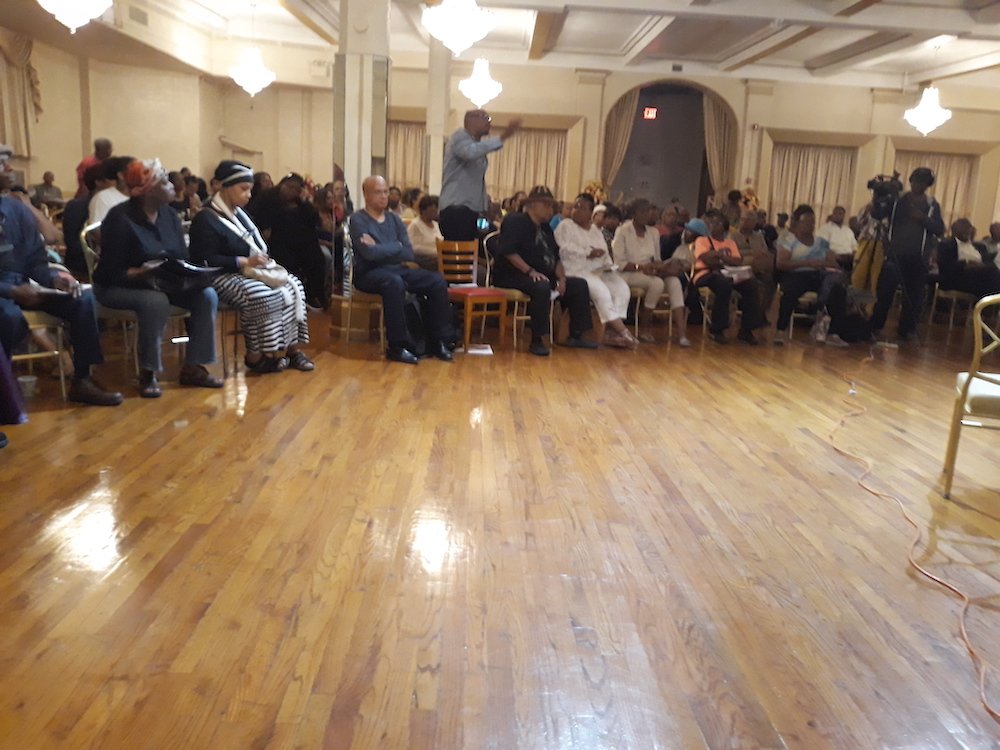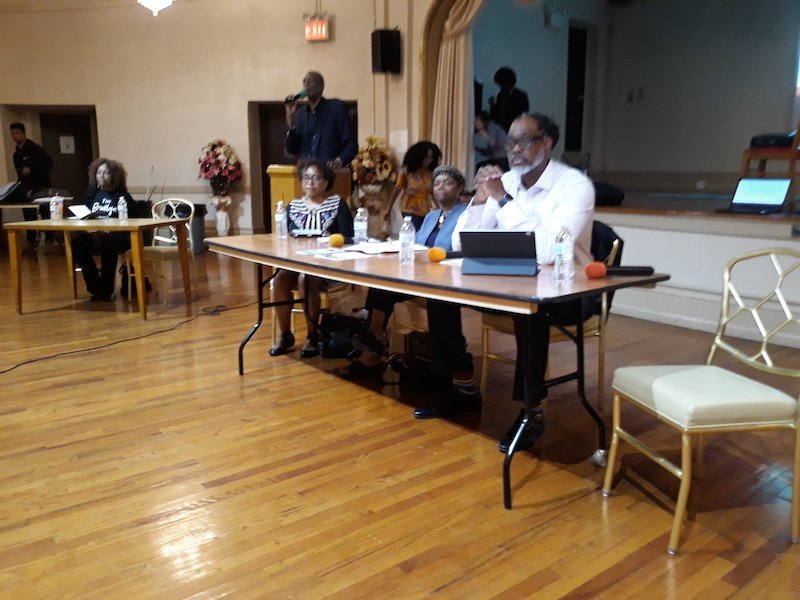Shadowy non-profit organizations with corporate and city ties that have been the beneficiaries of the city’s controversial Third Party Transfer (TPT) program might soon have to recuse themselves from obtaining property under the program due to potential conflicts of interest, Kings County Politics has learned.
Under legislation that City Council Member Robert Cornegy Jr. (D-Bedford-Stuyvesant, Northern Crown Heights) is drafting, any non-profit that manages and/or owns property in the city and also does foreclosure counseling would have to recuse themselves from obtaining any property for which they have previously done foreclosure counseling.
Additionally, Cornegy plans on drafting legislation, that would force non-profits to disclose publicly on their website and/or in some transparent manner all the properties they manage and/or own in which they get public money.
The legislation addresses two major issues that KCP has found in its ongoing series on the TPT program. The series has been credited for helping six property owners getting their property returned to them in court and for a federal class-action lawsuit, which if successful will result in millions of dollars returned to the city’s black and brown communities.
Under the Department of Housing Preservation and Development (HPD) run TPT program the city takes “distressed” properties from property owners with no equity given and transfers them to qualified sponsors (nonprofit or for-profit developers). Thus far, in all the cases KCP examined, non-profits were given the properties, which were taken from black and brown small property owners.
Once taking ownership, the non-profits often displace the current affordable housing residents, get property tax abatements and access to zero and 1 percent interest city funding to redevelop the properties, in which the non-profits get 10 percent of the total loan as a redevelopment fee.
In at least two of the stories, KCP posted, the non-profits that were given properties – St. Nicks Alliance and Bridge Street Development Corporation – did foreclosure counseling for the property owners and later wound up taking their property under the TPT program.
According to the St. Nicks Alliance 2016-17 annual report, 5,500 tenants live in housing built or managed by the non-profit. Repeated calls and emails to St. Nicks Alliance were unreturned.
Both St. Nicks Alliance and Bridge Street are part of a new umbrella non-profit, Joint Ownership Entity New York City (JOE NY), given IRS tax-exempt status in 2015. The mission of JOE NYC is “to secure the long term viability of non-profit run affordable housing and to make members more competitive in securing new affordable housing development opportunities.”
Besides St. Nicks Alliance and Bridge Street, JOE NYC includes a number of other members including Mutual Housing Association of New York, RiseBoro, IMPACCT Brooklyn that were recipients of TPT properties in the latest round.
JOE NYC Executive Director Peter Madden worked for HPD from 2007-2013 as the director of the Distressed Asset Finance Programs, where he “developed relationships with banks selling distressed mortgage notes and developed processes to support mission-oriented developers in purchasing these properties.”
KCP has a pending Freedom of Information request from the city to find the addresses and properties that both St. Nicks Alliance and JOE NYC manage/own or are developing with any city funding.

Cornegy said he will draft the legislation following a raucous Emergency Town Hall meeting last night at Crown Heights’ Historic First Church of God in Christ, 221 Kingston Avenue, that drew several hundred black Brooklynites, many of whom expressed anger at highly questionable court foreclosure proceedings as well as the TPT program.
Van Walker, a Bedford-Stuyvesant resident, who lost his home under a questionable court foreclosure proceeding and was jailed in the fight to keep the property, said he’s been to several meetings and has not seen solutions as of yet.
“Listen, in order to get a solution, we need to figure out who’s winning and who’s losing — and people of color are losing,” said Van Walker.
In the case of the TPT program, the KCP investigative series indicates the financial winners appear to be these shadowy non-profits that were given black- and brown-owned properties free and clear.
In the matter of foreclosures, according to foreclosure attorneys that KCP has interviewed and documents it has read, the winners include shadowy banking institutions, who buy mortgages from banks and other lending institutions, in which the property owner is financially distressed, and instead of working with the property owner, turns around and resells them at a profit to institutional investors.
Also at the meeting, Brooklyn Borough President Eric Adams renewed his call for a moratorium on the TPT program and a federal investigation of both the Kings County Court System and the TPT program to make people in the community who lost equity in their properties “whole again.”
Central Brooklyn State Sen. Velmanette Montgomery spoke of her recently signed legislation that provides greater protections for owners of homes that are in default or foreclosure. It also strengthens laws regulating distressed property “consultants” who provide services to prevent property loss.
Cornegy spoke of six pieces of legislation he is proposing to totally reform and revamp the TPT program including measures to increase the dollar threshold, from $1,000 to $100,000, for determining whether liens qualify for the TPT process, and increasing transparency for TPT properties submitted for council review.
But he said he would add the non-profit oversight measures after hearing from the community.
“These are levels of accountability that I have no problem calling for. The best legislation often comes from conversations with the community,” he said.






